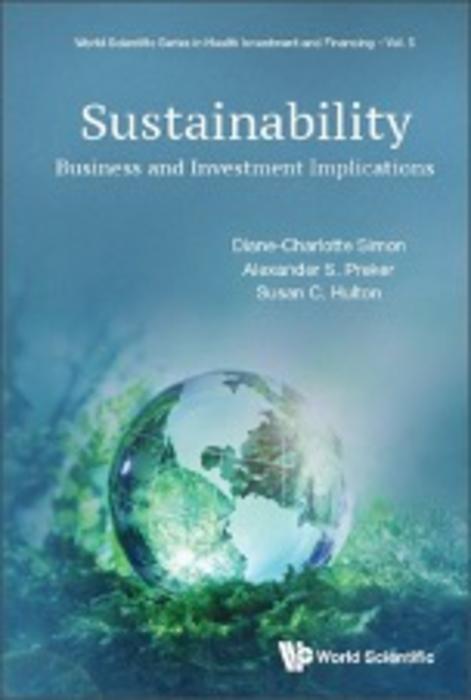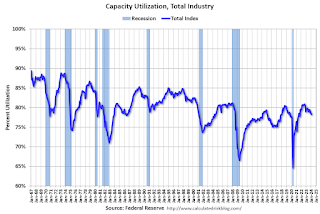Why does sustainability matter for businesses and financial institutions? For centuries, competitive markets have been drivers for growth and improvement of quality of life. It is paramount to ensure these markets are compatible with sustainability and can adequately mitigate and adapt to climate change. These changes require a significant amount of capital, and knowledgeable investment and business professionals to deploy it
Sustainability: Business and Investment Implications explores the opportunities and challenges presented by sustainability, the energy transition and the decarbonization of the economy. Over the past years, the United Nations and global leaders have emphasized the role that the private sector can play in protecting the environment and addressing sustainability issues such as climate change. Historically, governments have played the leading role in addressing sustainability issues and externalities, mainly through environmental policies, laws, and regulations. Though governments have recently demonstrated their ability to provide large amounts of capital to support the economy amidst the COVID-19 pandemic, their high level of debt and fiscal constraints have led many to question their ability to tackle sustainability issues on their own. The private sector is well-positioned to fill the gap.
But while the awareness of sustainability has significantly increased over the past decade, there are still major gaps in both investments and skilled professionals who understand sustainability-related opportunities and threats. These factors led to the development of this handbook.
Sustainability provides insights for businesses and investors on how to navigate this complex landscape of sustainability. It is intended as a primer for university business schools and schools of public policy and administration. It also appeals to a broader readership, including practitioners, thought-leaders, entrepreneurs, professionals, policymakers, regulators, technical specialists, and the public at large.
Corporate sustainability and sustainable finance are evolving so quickly that it can be difficult to keep up. Multiple frameworks, regulations, strategies (impact investing, shareholder engagements, etc.), and acronyms (ESG, SRI, etc.) have emerged over time. This book untangles these various terms and explores the implications of sustainability for financial institutions and companies of various sizes (from start-ups to large multinational corporations). It delves into the financial impacts of sustainability, analyzing both profitability and market valuation indicators, and also presents the financial case for embedding sustainability at the core of business strategy.
Sustainability is a major topic which interacts with many fields. Sustainability
Written by 15 contributors ranging from world leading experts, to professionals with hands-on experience in businesses and financial institutions (including multilaterals) as well as professors from leading institutions in the United States, France and Switzerland, Sustainability explores the fundamentals of corporate sustainability, sustainable finance and the transition to a lower carbon economy. The editors and chapter authors invite readers to be part of the solution — whether they work for a large company or a not-for-profit, whether they build their own business or become an investor, a banker, an engineer, a researcher, or a policymaker. Sustainability is multi-faceted and requires professionals of all kinds. The editors and chapter authors hope that readers will be inspired by this book so that they can address the challenges and seize the opportunities that lie ahead.
Sustainability: Business and Investment Implications was initiated and led by Diane-Charlotte Simon who acted as co-editor and the main author. Alexander Preker (Editor-in-Chief for the World Scientific Series on Health Investment and Financing) and Susan Hulton acted as co-editors and chapter authors. 12 additional experts contributed to the book as chapter authors. The book retails for US$145 / £130 (hardcover) and is also available in electronic formats. To order or know more about the book, visit http://www.worldscientific.com/worldscibooks/10.1142/12385.
###
About the Editors
Diane-Charlotte Simon is a finance professional committed to sustainability and the energy transition and has participated in transactions worth more than US$10 billion dollars in the renewable energy sector. She is currently a Vice President and Sustainable Banking Coordinator at Credit Agricole Corporate & Investment Bank, where she focuses on project finance in the US power sector. She has financed organizations of various sizes and life-cycle stages from early-stage start-ups to mature public companies. Previously, she worked as a Research Analyst at NewWorld Capital, a private equity firm providing growth capital and business assistance to companies generating environmental co-benefits. (linkedin.com/in/dianecharlottesimon)
Alexander S. Preker is a globally recognized expert on financing, capital investment, private sector development, and market-based solutions to public policy challenges. He was one of the Commissioners for the Global Commission on Pollution, Health, and Development, USA. He is President and CEO of the Health Investment & Financing Corporation, USA and a board member of several companies. Prior to his current work, Professor Preker had a distinguished career, working during decades in the World Bank (Chief Economist for Health), the International Finance Corporation (Head of Health Investment Policy) and other international organizations. He has published extensively, having written many scientific articles and authored over 20 books. He holds several academic appointments including at Columbia University, USA. (linkedin.com/in/alexander-s-preker-7b3b82a)
Susan C. Hulton is an international lawyer and legal adviser specializing in public international law. She has extensive experience advising governments, and a record of leadership and innovation as a senior manager in the United Nations, an international criminal tribunal, and an international nongovernmental organization. She is active in advocacy work in New York City and New York State in support of environmental justice, leading, for example, to the enactment of legislation establishing a moratorium on carbon-intensive cryptocurrency mining. During the early 1990s, she was a legal adviser on territorial sovereignty disputes; boundary issues (land and sea); and international environmental and natural resources law. From 1994 to 2000, she was a Legal Adviser with the UK Foreign and Commonwealth Office in London. From 2001 to 2018, Ms. Hulton served as a senior official with the United Nations Department of Political Affairs, advising chiefly on Security Council matters, preventive diplomacy, and peace-making initiatives..
About the Contributors
The book also benefits from the contribution of the following chapter authors:
- Robert L. Berridge is Senior Director of Shareholder Engagement at Ceres, USA where has worked since 2006. Previously, he was a general manager for Green Century Capital Management, USA, helping to oversee the marketing and operation of two environmentally-focused mutual funds as well as the exploration of new fund ideas focusing on best-in-class ESG (Environmental, Social, and Governance) strategies. (linkedin.com/in/robberridge)
- Karl Boyd Brooks is a lawyer, a former Regional and Assistant Administrator for the United States Environmental Protection Agency (EPA), and former U.S. Supreme Court Fellow. After practicing law for a dozen years, he was named EPA Regional Administrator for the American Heartland by President Obama in 2010. Dr. Brooks has taught and written about the interaction of law and government administration for a decade. (linkedin.com/in/karl-brooks-3505bb69)
- R. Daniel Bressler is an economist who served in the Biden Administration as a Climate Staff Economist at the Council of Economic Advisers from 2021–2022. His research, which focuses on climate change economics as well as other global risks, has been cited by the Supreme Court and covered in outlets such as the New York Times, NPR, Scientific American, and Vox. (https://rdanielbressler.com)
- James Gifford is the Head of Sustainable and Impact Investing for Credit Suisse. He is also a Senior Fellow at the Centre for Sustainable Finance and Private Wealth at the University of Zurich, Switzerland, where he teaches a joint program with Harvard, USA, on impact investing for the next generation of ultra-high-net-worth family members. James was the founding Executive Director of the UN Principles for Responsible Investment. Dr. Gifford has published numerous articles and book chapters on sustainable investment. (linkedin.com/in/drjamesgifford)
- Peter S. Heller worked at the International Monetary Fund (IMF) for almost 30 years, where he wrote extensively on issues of economic development and poverty reduction, macro fiscal policy, and climate change. At the IMF, he was the Deputy Director of the Fiscal Affairs Department of the International Monetary Fund. His book, Who Will Pay? Coping with Ageing Societies, Climate Change, and other Long-Term Fiscal Challenges, was published by the IMF in 2003. He has taught and written extensively on economic and fiscal issues. (linkedin.com/in/peter-s-heller-168120b)
- Laurie Lane-Zucker is the Founder and CEO of Impact Entrepreneur, PBC, USA, an impact economy business that hosts the Impact Entrepreneur Network and publishes ImpactEntrepreneur.com, a digital media source covering impactful business and finance solutions advancing sustainability goals around the world. For over 30 years, Laurie has been a recognized leader in sustainability, social enterprise, and impact investing. (linkedin.com/in/laurielanezucker)
- Andrea E. McGrath is the Founder of Amplified Impact, USA, a strategic advisory and research firm. Mrs. McGrath is a strategic and entrepreneurial leader with deep, cross-sector experience helping individuals and organizations, ranging from startups to the Fortune 500, to catalyze ideas into action. Mrs. McGrath has worked with trailblazers and pioneers in the fields of social entrepreneurship, academia, philanthropy and impact investing over the past two decades. (linkedin.com/in/andreamcgrath)
- Alan Miller is a lawyer and internationally recognized authority on climate finance and policy who worked for 20 years at the International Finance Corporation, the private sector arm of the World Bank Group (WBG), and at the World Bank, where his responsibilities included representing the Global Environment Facility and WBG in international forums focused on climate change and green growth. He has taught and written extensively on environmental and environmental law issues. (linkedin.com/in/alan-miller-9245b27)
- Robert Pojasek has been teaching risk management, sustainability, process improvement and management systems at the Master’s degree level and through open enrolment arrangements at Harvard University, USA, and Tufts University, USA, since 1987. Dr. Pojasek was presented the Petra T. Shattuck Excellence in Teaching Award at Harvard University, USA. (linkedin.com/in/bobpojasek)
- Ingmar Schumacher is Professor of Environmental Economics at IPAG Business School in Paris, France. His research focuses on environmental economics, with particular emphasis on climate change, migration, and endogenous preferences. Prior to his position at IPAG Business School, he worked as an economist for the Central Bank of Luxembourg and held a post-doctoral position at Ecole Polytechnique in Paris, France. He is the Managing Editor of Environmental & Resource Economics. (https://ingmarschumacher.com)
- Jerome Tagger is a Partner at WhiteLabel Impact, USA, and the CEO of Preventable Surprises, USA, a think tank sparking difficult conversations about responsible finance. He was a founding COO of the Principles for Responsible Investment, UK, an executive at the Global Impact Investing Network, USA, Head of Research at Eurosif, UK, and Chief Revenue Officer at ImpactAlpha, USA. (linkedin.com/in/jerometagger)
- Tensie Whelan is Director of the NYU Stern Center for Sustainable Business and a Clinical Professor for Business and Society at New York University, USA, where she brings her 25 years of experience working on local, national, and international environmental and sustainability issues to engage businesses in proactive and innovative mainstreaming of sustainability. Mrs. Whelan was awarded the NYU Stern Faculty Excellence award in 2020. (linkedin.com/in/tensie-whelan-937b7b11)
About World Scientific Publishing Co.
World Scientific Publishing is a leading international independent publisher of books and journals for the scholarly, research and professional communities. World Scientific collaborates with prestigious organisations like the Nobel Foundation and US National Academies Press to bring high quality academic and professional content to researchers and academics worldwide. The company publishes about 600 books and over 170 journals in various fields annually. To find out more about World Scientific, please visit www.worldscientific.com.
For more information, contact WSPC Communications at communications@wspc.com.
DOI
10.1142/12385








































